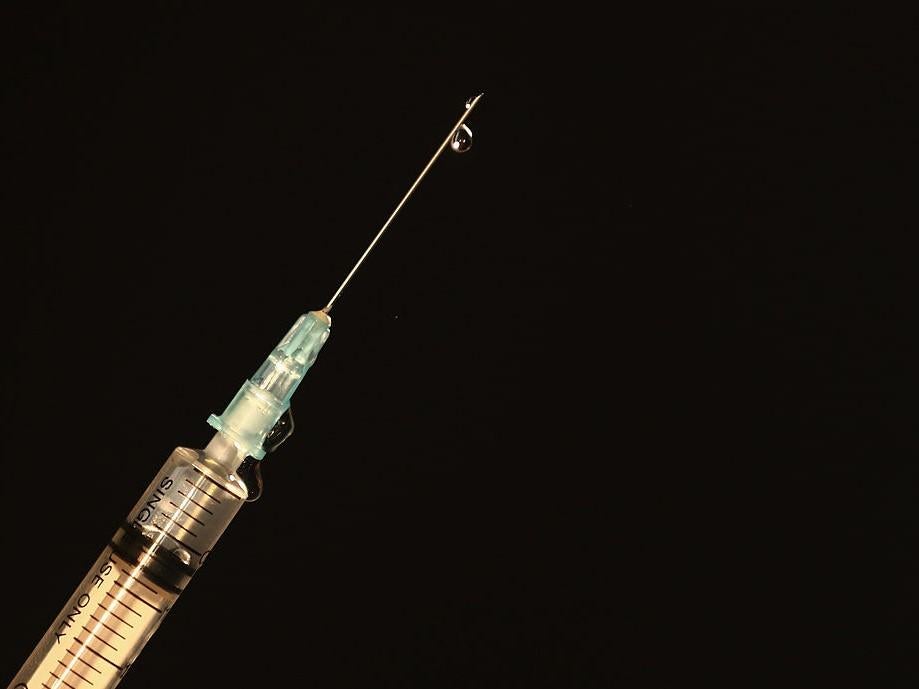Social media may spread anti-vaxxer myths but their cause is more complex
Analysis: We can’t fully disentangle social media’s misinformation impact on measles’ resurgence, but technology has only served to amplify age-old tensions about vaccines

Health crises rarely emerge overnight. As with smoking and lung cancer, or the obesity epidemic putting pressure on NHS resources, so the current global measles outbreak can be traced back decades.
Last week the World Health Organisation warned that there had been 110,000 measles cases diagnosed in in the first three months of 2019 so far, a 300 per cent rise on the same point the previous year.
On Thursday, the children’s charity Unicef released its own analysis showing more than half a million children in the UK are potentially unprotected against measles after missing routine vaccinations since 2010.
Historically low uptake has been traced to ineffective health systems, but now health authorities are increasingly grappling with falling demand or “vaccine refusal” from mistrust, fear, and even apathy.
As with many 21st-century ills, technology has been put firmly in the crosshairs, with repeated warnings about prominent vaccine sceptics and groups spreading dangerous myths on social media.
The head of NHS England warned falling vaccination rates are a “growing public health timebomb” and said sharing misinformation was “grossly irresponsible”.
But others say this is a new outlet for an age-old phenomenon.
“Anti-vax sentiments have existed as long as vaccines have existed, but now these voices have a different medium for transmitting information,” Dr Robin Nandy, head of immunisations at Unicef, told The Independent.
While seeing these claims on social media may sway some people, he said we don’t yet have the data to know how many, and there are many other issues we’re more sure of.
One in particular is the success of vaccines. Dr Nandy said people in Asia or sub-Saharan Africa where infectious disease is a day-to day reality will “queue for hours and miss work” to get their vaccine, but in the US these outbreaks are no longer experienced.
Another major issue is one of trust, with Dr Nandy arguing that people who have a good experience of healthcare, and who trust their doctor or other health authorities, are more likely to disregard false claims they see on Facebook.
However, as we have heard, authority figures don’t always command the authority they once did.
“Increased vaccine refusal is clearly linked with the rise in support for populist parties,” said Dr Jonathan Kennedy, a global health lecturer at Queen Mary University of London.
“In both cases, the driving force is increasing anger and suspicion towards elites and experts.” In health this manifests in “incredulity and hostility” to the government and anyone who insists on the importance of vaccines, he added.
Social media also removes the quality control and levels the playing field for dubious authorities to reach a mass audience.
Anti-vaxxer Andrew Wakefield, who first popularised the myth of a link between vaccines and autism, was initially widely reported by the mass media. These stories contributed to a collapse in vaccination rates in the early 2000s, which have added to today’s outbreaks.
Now, despite being discredited and stripped of his medical licence, he has relocated to the US and continues to spread misinformation and leads an international community of concerned parents online.
His work has even led him to a meeting with Donald Trump, who has in turn repeatedly shared claims about vaccines causing autism.
In this context the stagnating figures uptake is less shocking, and also provides less reassurance that the efforts of groups like Unicef will turn vaccination rates around before they get worse.
“You either get vaccine or get measles, it is that simple,” said Dr Philip Minor, a former member of the National Institute for Biological Standards and Control.
“[But] what do you expect when the president of the United States dissed measles vaccines?”
Join our commenting forum
Join thought-provoking conversations, follow other Independent readers and see their replies
0Comments